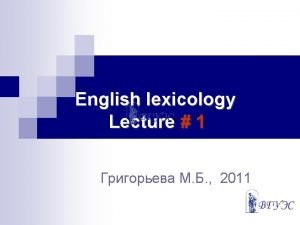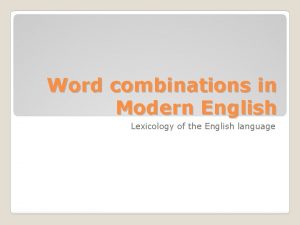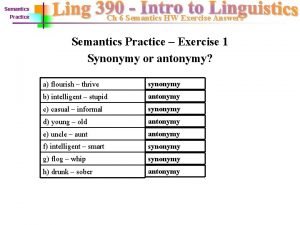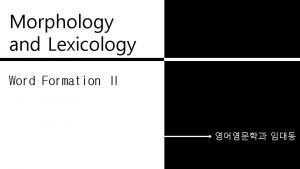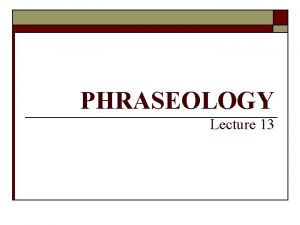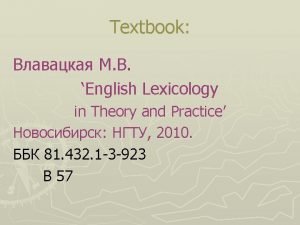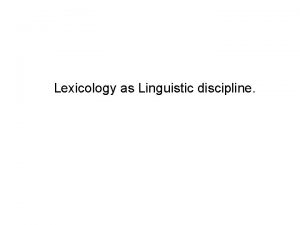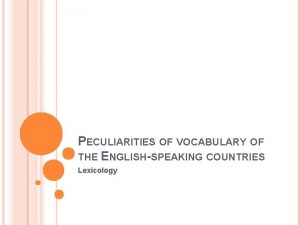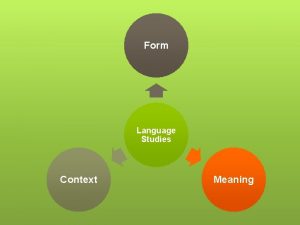LEXICOLOGY deals with the vocabulary of a language

LEXICOLOGY deals with the vocabulary of a language and the properties of words

LEXEME ► the smallest unit in the meaning system of a language. Lexeme is an abstract unit. ► E. g. : inflected forms gives, giving, given, gave belong to one lexeme give; ► similarly give up is a single lexeme

WORD = basic minimum free unit of a language ► association of meaning with group of sounds capable of grammatical employment. ►

WORDS are studied from these aspects: ► ► ► phonological – consists of sounds; morphological – consists of morphemes; syntactical – its position & function within a sentence; semantic – Does it have one or more meanings? Are they related? stylistic – its stylistic colouring

WORD-FORMATION PROCESSES DERIVATION = sticking affix to existing word (root) to create a new word E. g. qualify – disqualify – qualification 2. CONVERSION = zero derivation, converted words can be created: E. g. : N > V (water > to water) V>N (to walk > a walk) Adj. > V (dirty > to dirty) 1.

3. COMPOUNDING ► joining two or more separate words to produce a new single form (e. g. basketball, mother-in-law, flower pot, blackmail, pickpocket, forget-me-not) ► semantic integrity = meaning of the whole is not a sum of its elements, e. g. chatterbox is not a box, it is a person

4. BORROWING when a W is taken over from another language, modified in phonemic shape and according to the standards of the borrowing language ► 70% of the English vocabulary consists of loan words ►

5. COINAGE ► invention Brexit) of totally new terms (i-phone, ► least productive word-formation process in English ► lookie-likie (dvojník)

WORD-FORMATION PROCESSES BASED ON SUBTRACTION ► 1. BLENDING – two lexemes produce a new single form in a way that the initial part of one lexeme is joined to the final part of the other lexeme: carbage = car + garbage foolosophy = fool + philosophy smog = smoke + fog

2. CLIPPING ► a) b) c) d) reduction of a longer word into a shorter form: initial – the beginning is dropped (phone) final – the end is dropped (advert, exam) initial and final – the middle part is kept (flu, fridge) mixed – Frisco, Japs, fries (French fried potatoes)

3. BACK FORMATION ► when a W of one type (usually a noun) is reduced to form another W of a different type (usually a verb): E. g. television > televise, baby-sitter > baby-sit, editor > edit

4. ACRONYMY formation of new Ws from the initial letters of a set of other Ws. ► Capital letters are used without periods and the Ws are pronounced as single forms: NATO, UEFA, UNESCO ►

5. INITIAL ABBREVIATION ► based on the use of individual letters for the constituent words; ► they are spelled and usually use periods to separate the letters: C. I. A. , V. I. P. , V. A. T.
- Slides: 13

